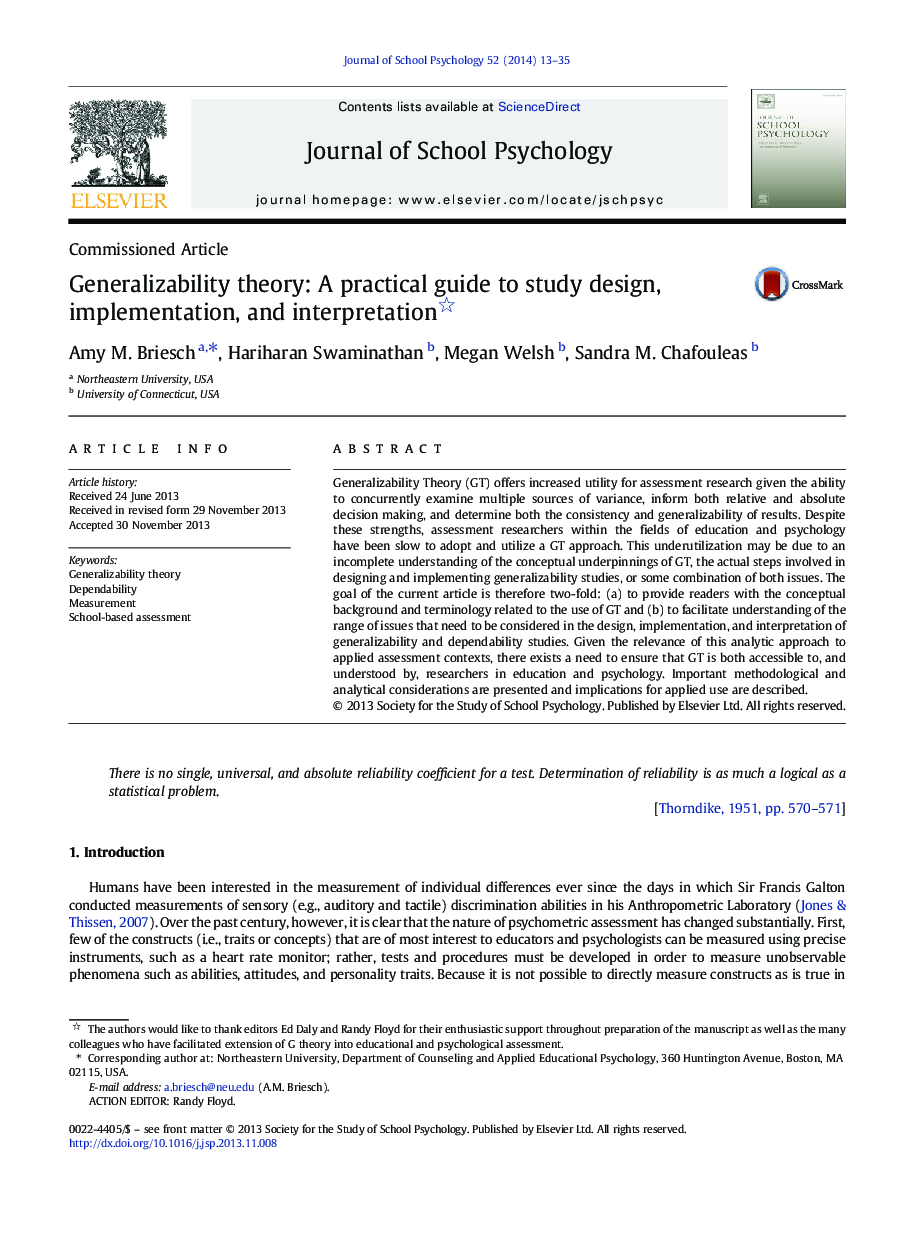| Article ID | Journal | Published Year | Pages | File Type |
|---|---|---|---|---|
| 363484 | Journal of School Psychology | 2014 | 23 Pages |
Generalizability Theory (GT) offers increased utility for assessment research given the ability to concurrently examine multiple sources of variance, inform both relative and absolute decision making, and determine both the consistency and generalizability of results. Despite these strengths, assessment researchers within the fields of education and psychology have been slow to adopt and utilize a GT approach. This underutilization may be due to an incomplete understanding of the conceptual underpinnings of GT, the actual steps involved in designing and implementing generalizability studies, or some combination of both issues. The goal of the current article is therefore two-fold: (a) to provide readers with the conceptual background and terminology related to the use of GT and (b) to facilitate understanding of the range of issues that need to be considered in the design, implementation, and interpretation of generalizability and dependability studies. Given the relevance of this analytic approach to applied assessment contexts, there exists a need to ensure that GT is both accessible to, and understood by, researchers in education and psychology. Important methodological and analytical considerations are presented and implications for applied use are described.
